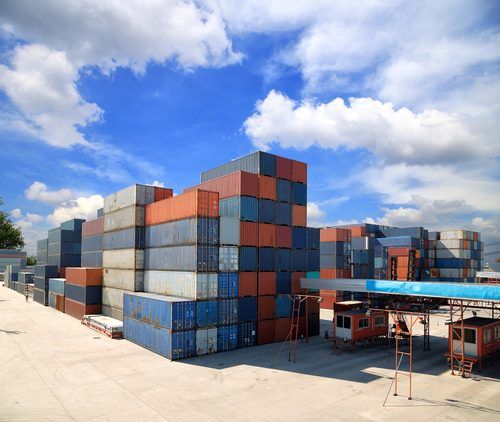April 15, 2014 | Industry Insights
TRIA Reauthorization and the Transportation and Logistics Industry

TRIA Reauthorization and the Transportation and Logistics Industry
During the last eighteen months there has been ongoing debate over the reauthorization of the government-backed Terrorism Risk Insurance Act (TRIA), which is set to expire on December 31, 2014. There have been multiple hearings during this time with the most recent taking place the week of April 8th. On the heels of the one-year anniversary of the Boston Marathon terrorist attack, the Senate just agreed to a bipartisan bill that would extend TRIA for seven years with some major changes. The primary change would increase insurer co-pays from 15% to 20% for losses above the $30 billion threshold, while increasing the recoupment amount by $10 billion, to $37.5 billion.
The federal program was first established in 2002 as the Terrorism Risk Insurance Act (TRIA) after the 9/11 attacks and reauthorized in 2005 and then again in 2007. TRIA provides a federal reinsurance backstop for terrorism coverage in the commercial property-casualty terrorism insurance market. In exchange for this federal backstop, insurers are required to offer terrorism insurance coverage for commercial Property/Casualty lines. TRIA applies to specific lines of commercial insurance, the largest of which include commercial property (structures and contents), business interruption, workers compensation and general liability. (Coverage under workers compensation for terrorism is automatically covered.)
TRIA is considered a successful program by the insurance industry, the business community and others. In the wake of the 9/11 attacks and the significant costs to insurers, both reinsurers and insurance companies stopped offering the coverage and included terrorism exclusions in their policies. This is what propelled Congress to pass the federal program in the first place. Since then, TRIA has brought stability and coverage options to the marketplace, with some 60% of commercial policyholders purchasing insurance over the past several years. In fact, a recent report from the Insurance Information Institution (I.I.I.), “Terrorism Risk: A Constant Threat”, cites: “By all accounts the terrorism risk insurance program is an unqualified success – a rarity among federal programs – that has achieved all of its goals. The program not only succeeded in restoring stability to the country’s vital insurance and reinsurance markets in the wake of the unprecedented market dislocations associated with September 11, 2001 terrorist attack, but it continues to deliver substantive, direct benefits to businesses, workers, consumers and the economy overall – all at little or no cost to taxpayers.”
The Impact of Non-Authorization of TRIA
In the absence of TRIA, terrorism risk Insurance would be a lot less available and would leave many businesses uninsured. Some insurers would exclude coverage for all coverage lines except workers compensation where a terrorist attack is automatically covered. The fear, however, is that even workers compensation would be affected as insurers would stop offering the coverage and/or pricing would significantly increase, especially in vulnerable hotspots, such as urban areas. Additionally, according to a recent study by the RAND Corporation, for terrorist attacks with losses less than about $50 billion, having the Terrorism Risk Insurance Act in place will lead to less federal spending than if it were eliminated. What’s more, eliminating TRIA could increase federal spending by $1.5 billion to $7 billion for terrorist attacks with losses ranging from $14 billion to $26 billion. RAND notes that “if the Terrorism Risk Insurance Act is allowed to expire, the U.S. would be less resilient to terrorist attacks.” Furthermore, access to appropriately priced terrorism insurance can promote economic growth…and “recovery and rebuilding will be more rapid and efficient if the take-up rate (the percentage of those purchasing coverage) for terrorism insurance is high.”
National security would also be impacted. As noted in the I.I.I. report, TRIA has now become a part of our national economic security, something that wasn’t anticipated twelve years ago. The Terrorism Risk Insurance Act helps ensure that the nation’s essential financial systems are up and running if another major terrorist attack occurs, and is as critical as our national defense.
The logistics service provider industry would also greatly be affected by the non-authorization of TRIA. With the Terrorism Risk Insurance Act in place, the transportation industry has access to purchasing much-needed terrorism coverage along with their insurance program or as a standalone policy. Like all other industries, if TRIA is allowed to sunset there will be far-reaching consequences for everyone involved in the supply chain.
Roanoke Trade specializes in the transportation and logistics industry and has the expertise, experience and products to protect your operation, employees and financial assets along with the goods in your care and custody for the clients. We will continue to keep you updated as developments progress on the TRIA reauthorization.













